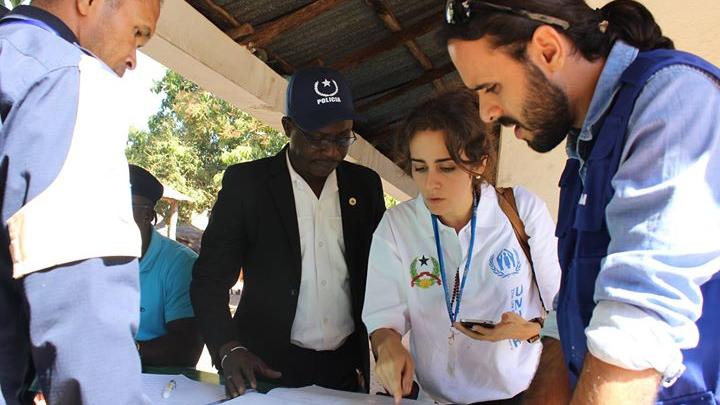According to a joint mission that went to the north of the country on 18 January, 4,327 Gambian nationals have entered Guinea-Bissau. Since the 15th, the number of tickets registered is around one thousand a day.
The majority of them are women, adolescents and children, coming mainly from the Brikama region, south of Banjul. They are being welcomed by relatives or friends, especially in the region of Bissau, Bafatá, Cacheu and Oio. The main official entry points in Guinea-Bissau are Djegue, Farim, Cambadjo, Senabaca and Pirada. However, there are also people crossing the border between Senegal and Guinea-Bissau in Ingoré, Bigene and Varela.
The mission, led by the UN Humanitarian Coordinator in Guine-Bissau, Ayigan Kossi, facilitated by the United Nations High Commissioner for Refugees (UNHCR) and the National Committee for Refugees, found that people are at great risk of food insecurity , Since the host families will not be able to sustain them for a long time. The influx of people can also bring an overload on health services that are already insufficient for the normal population.
In view of this situation, the Government of Guinea-Bissau, through the Ministry of the Interior, which is registering the persons, and the Ministry of Foreign Affairs, prepared a contingency plan and requested assistance from the partners.
A multidisciplinary technical committee was established on 19 January, including UNHCR, the World Health Organization (WHO), the International Organization for Migration (IOM), the United Nations Children's Fund (UNICEF), the World Food Program (WFP), the United Nations Integrated Office for the Consolidation of Peace in Guinea-Bissau, the two ministries mentioned above, the National Institute of Health (INASA).
The commission will now organize food assistance and prepare an emergency plan, coordinating the help of all partners to assist up to 10,000 people for 4 to 6 weeks, as well as screening and assessing needs and continue to monitor The situation.
"If the political situation gets complicated it is possible that the influx of people increases, but this forecast already allows us to help these people for 4 weeks, then the plan can be revised, however it is not necessary to wait for the plan to provide food aid To these people. "Ayigan Kossi explained.
"We need the help of international partners to increase the resilience of families who are receiving refugees," said Tibna Sambé Na Wana of the Interior Ministry.






